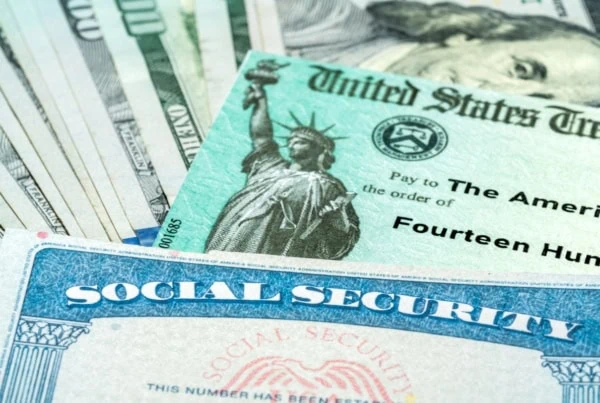When you’re shopping, it might feel like you have a frugal angel perched on one shoulder and a spendthrift devil squatting on the other. “You deserve to treat yourself,” the devil shouts, over and over again, every time you even glance at something you want.
“But you don’t really need it,” the angel whispers, barely audible. Wait, was that anything at all?
If you want to save money, your frugal angel needs to speak out with its whole chest. And today, I’m going to help make that happen.
Read on as I explore a list of questions you should always silently ask yourself before you purchase non-essential items. The answers to these questions could result in better shopping decisions—finding savings in some cases, and not buying what you don’t really want in others.
Avoid Buyer’s Remorse With These Questions

Most of us have experienced buyer’s remorse at one point or another. What seemed like a smart purchase at the moment eventually felt like a big waste of money.
If you’ve felt that before, you know you don’t want to feel it again. And if you haven’t yet … well, just trust me, it’s not among life’s best experiences.
Fortunately, you can greatly lower your chances of regretting a purchase by asking yourself these questions before you fork over your payment. You’ll likely need some discipline in reminding yourself to go through each one, one by one, each time you consider buying something. But if you keep at it, they should readily flip through your mind anytime you shop.
1. Do I need it right now?

Did you see the perfect dress for a flapper-themed party? That’s great … if you have any plans whatsoever to attend a flapper-themed party.
It’s all too easy to buy an item “just in case.” We often want to be prepared for things that might never happen. And when we do that, we often assume we have to act right now, ignoring the possibility that said item might not only be available down the road, but it might be cheaper at that point.
Don’t buy a wedding dress before you’re engaged. (A friend of mine actually did this once, just to return it later). Don’t grab the world’s cutest baby onesie because you think you might try to get pregnant in a few years.
Even if it’s an item you’re confident you’ll use, you shouldn’t feel pressured to stock up far before you’ll need it—because by the time you need it, it might be on sale, a competitor might have released a better more affordable version, and you might not even want it anymore.
Related: Top 10 Grocery Stores Ranked by Value
2. Do I already own something similar?
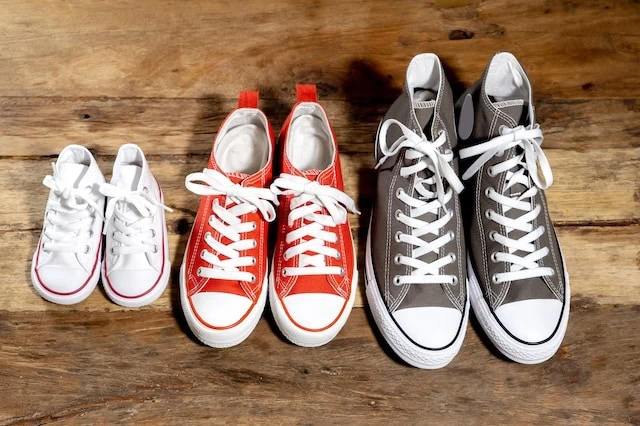
Do you already own five little black dresses? How badly, then, do you really need No. 6? Do you rarely wear heels but own three pairs? Maybe skip getting another pair, even if they would make you feel like a character in Emily in Paris.
These are fashion examples, but this question applies to many other categories.
Crafters love to buy yarn, pens, and paints, even if they already have plenty of a nearly identical color at home. The same holds true for makeup. If you already have light pink eye shadow at home, maybe wait until that runs out before you buy an ever-so-slightly different shade of light pink. Do you have a perfectly good Craftsman tool cabinet that’s only half-full? Then as much as you might love Kobalt blue, you should probably leave Lowe’s empty-handed.
3. Can I get a discount?
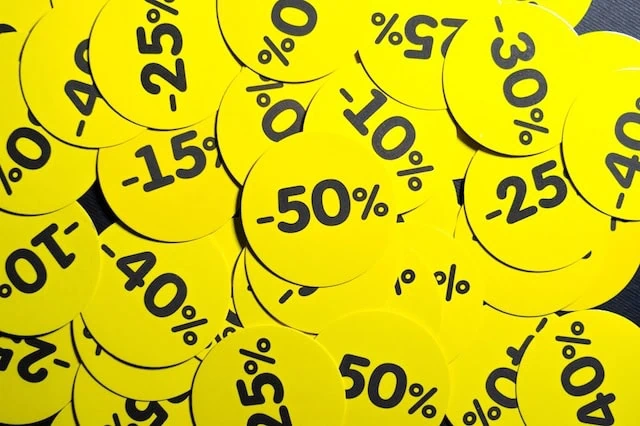
The exercise of thinking about your purchases isn’t solely meant to prevent you from buying too many things. It’s also meant to think about how to make more cost-effective choices when you do need to purchase something.
Never pay full price for a product or service if you’re eligible for a discount. My mother is never shy about asking for senior discounts. Students, teachers, military members, veterans, AARP members, and AAA members can frequently find discounts, too.
You might be surprised just how many stores, restaurants, and experiences offer certain groups discounts. For example, Apple is known to offer student and teacher discounts. As of this writing, Apple.com is selling its M4 MacBook Air starting at $999. However, with education savings, students can not only get $100 off, but they can also receive one of several eligible accessories—such as AirPods Pro 2, Magic Trackpads, and Magic Keyboards—representing another $79 to $199 in value.
Related: 12 Tips for Saving Money on Groceries
4. Can I find it cheaper elsewhere?
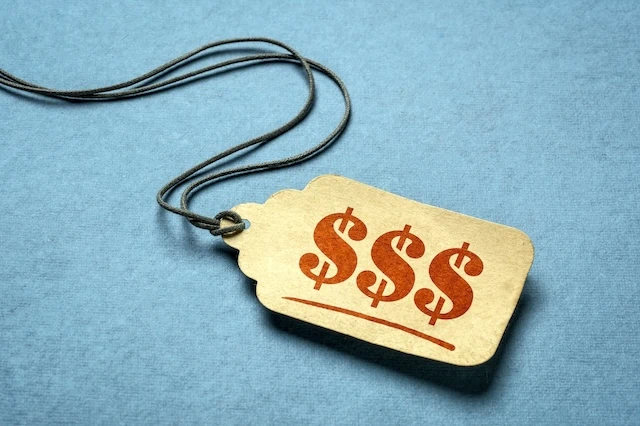
Doing price comparisons can sometimes take a little bit of time and effort, but it’s worth it. Another store might have the exact same toy, shoes, tool, or whatever product you need, at a cheaper price.
And thanks to smartphones, we can literally compare prices while we’re in the store—so if you have a phone, you don’t really have an excuse. Just type the brand and product description in the search bar of similar stores or marketplaces and see how it’s priced elsewhere.
For what it’s worth, there is something to be said for supporting smaller businesses rather than always flocking to Amazon, Walmart, or Target to get the lowest price. If you see a price cheaper elsewhere, but would prefer to buy from the store you’re currently at, you can always ask if they will do a price match.
I’ve done this before. For those unfamiliar, the Midwest chain Blain’s Farm & Fleet has over 40 stores. While it’s still a chain, it’s much less prominent than, say, Walmart, which has thousands of locations in the U.S. alone. During the holiday season, my significant other and I have successfully had them price-match toys that were cheaper at major chains.
If that’s not doable? You can always choose to pay the higher price in the name of supporting a specific business. There’ll be plenty more purchases down the road where you can find your savings.
5. Can I get this item for free?

Every now and then, you might be thinking about buying an item that you can actually get for free.
Your local library is the best source for many of these things. If I bought all of the books I read instead of borrowing them from the library, I’d be broke. But libraries offer much more than paperbacks. For instance, my library system sends out HappyLights to help people keep their spirits up in the winter. Some libraries near me also give away free planting seeds in the summer. Your local library may lend out games, movies, and even tools. Don’t forget about free events that may make for a perfect date night!
Some electric utilities will send out free (or if not free, extremely deeply discounted) energy-efficient LED bulbs, smart thermometers, high-efficiency showerheads, and faucet aerators.
You might be able to get big expenses for free too. For instance, you might move back home after college to save on rent—you might have less privacy for a few months, but in that time, you could save a substantial amount of money that could go toward a condo or house down payment.
Related: Experience More, Spend Less: 10 Experiences Seniors Can Do Cheaper
6. Can I buy it used?
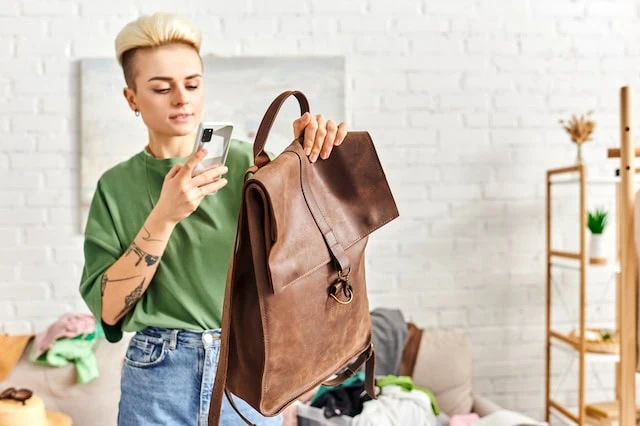
I’m a big fan of buying gently used clothes off of Poshmark. Not only is used clothing more affordable, but with the rise of fast fashion, thrifting can often unearth higher-quality items than what you’ll find new at many stores.
Clothes aren’t the only item that can be beneficial to buy pre-owned, either. In fact, there are some items you should almost always buy used, such as holiday decor and new-hobby equipment.
Before you go to the store to buy yourself a treadmill or other workout equipment, consider checking if anyone is selling a used one on Facebook Marketplace or Craigslist. There’s a good chance one is currently being used as a coat rack in someone’s home and they are willing to sell it at a significantly discounted price.
Sure, there are some items you should always buy new. But more often than not, you can save a lot of money buying something used, without sacrificing much (if any) quality.
7. Can I rent it?
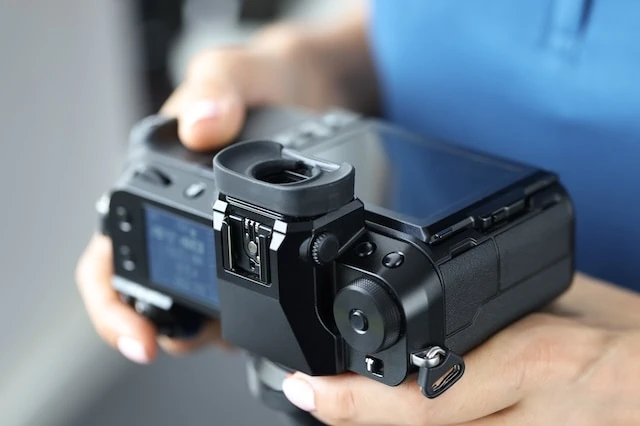
For any item you will only need once, or very infrequently, you should consider renting instead of buying outright.
One of my friends loves to use Rent the Runway for vacation and wedding outfits. It lets her dress in designer clothes without the high price tags of buying them. (However, if you love it, RTR usually gives you the option to buy outfits after renting them).
Do you want to do a project that requires expensive power tools? You might be better off renting them rather than buying them, using them once, then letting them collect dust in your garage for the next 20 years. Not only are tools expensive, but they’re a major source of garage clutter, which is a no-no for anyone trying to become more minimalist.
You can rent deep-cleaning equipment, event decorations, even caskets (yes, caskets) if you’re trying to cut down on common funeral expenses.
Unless you’re confident you’ll get a lot of use out of a product and have the room to store it, always consider if renting is the better route.
Related: 10 Ways to Plan a Dream Wedding [And Still Stay on Budget]
8. Could I share the cost with someone?

Splitting the cost of something with another person can often be a financial win-win.
Let’s talk about an expense that has become ubiquitous: subscription costs. Using Spotify as an example, as of this writing, a Premium Individual account costs $11.99 per month, while a Premium Duo account (which includes two accounts) costs $16.99 per month, and a Premium Family account (which allows for up to six Premium or Kids accounts) is $19.99 per month.
In other words, rather than spending $12 per month for your own account, you could split a Duo account with a roommate, spouse, or sibling and pay only $8.50 per month each ($17 / 2). If you live with more roommates, an adult family member or two, or have teenage kids, you could pay even less per month by splitting up a Family account, which would cost $6.67 per month for three people, $5 per month for four people … you get the point.
A popular venue for splitting costs is sports tickets. Love your hometown team but think you and your wife will only be able to go to a few games each year? Split a pair of season tickets or two multigame packages with friends or coworkers.
An oldie (but a goodie) is carpooling, which lets you save on fuel costs and maintenance. Just need a ride around the city? UberPool (where available) lets riders share a ride with other people heading in the same direction. This option typically gives you a lower price regardless of whether the driver picks up other riders.
9. Would I rather put the money toward something else?

When it comes to discretionary purchases, sometimes it’s not about whether you can get a good deal, but instead, about whether your money would be better spent on a more important or attractive expenditure.
Let’s say you’re saving for a vacation to Paris. One day, as you wait in a long check-out line, you spot your favorite candy and consider grabbing it as a treat for your drive home. Ask yourself, “Do I want this chocolate now, or would I prefer to spend that money on a freshly baked croissant in Paris?”
Or maybe you want to see a new movie that’s coming out. Before buying that ticket, ask yourself, “Would I rather buy this movie ticket now, or watch this movie on Disney+ in a couple of months and use this money to buy a ticket to the Louvre instead?”
Your money isn’t unlimited, so you should always consider whether you’re using your discretionary funds in a way that will make you happiest.
Related: 10 Retirement Questions: Are You Ready to Leave the Workforce?
10. How much did I have to work to earn this?

If you work, you exchange your time and effort for money. That seems obvious, but most people tend not to think about that at the exact moment they’re making a recreational purchases.
But it can help to remind yourself of how much time you have to work to pay for an item.
Let’s say you really want to splurge and buy yourself a Louis Vuitton purse that costs $3,500. Your current purse is falling apart, so you need a new bag anyway, and you have enough money in your savings account to buy it outright. But if you actively think about the fact that you’d have to work, say, an entire month to get $3,500 worth of take-home pay, it might no longer feel worth the cost—and you might buy a more affordable purse instead.
If you’re not willing to work overtime for a luxury purchase, it’s probably not worth it.





